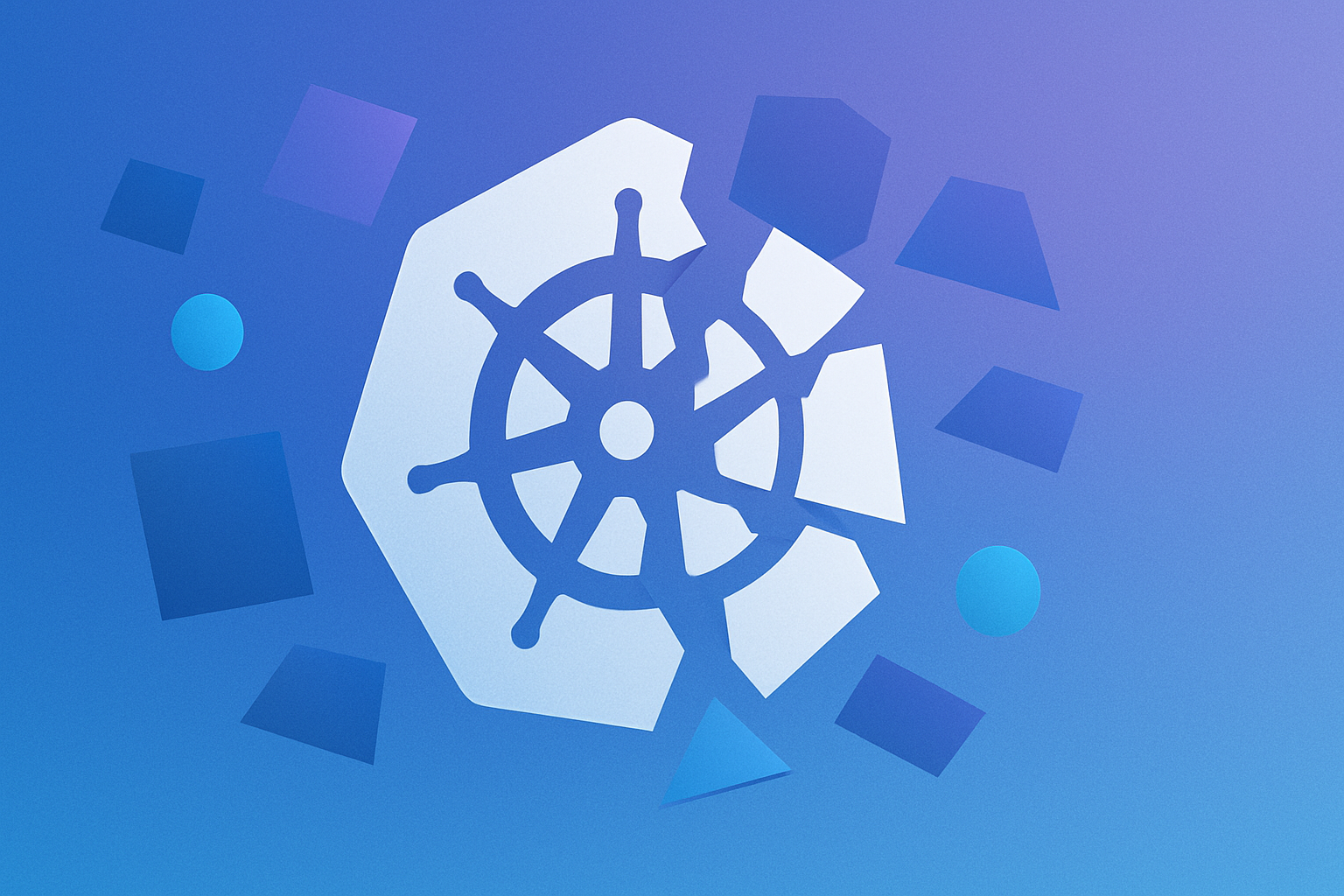Backstage is an open-source platform created by Spotify that has revolutionized the way organizations manage their software infrastructure. Designed to streamline and standardize service creation, Backstage empowers teams to maintain high productivity by providing a single pane of glass for all their development tools, services, and documentation. Central to its functionality is a plugin ecosystem, enabling users to extend its capabilities in diverse ways.
In this post, we'll explore nine of these useful plugins that can enhance your development workflow. They cater to various aspects of software development, including the following:
- Software catalog: Manage and document your software components.
- CI/CD: Integrate your continuous integration and deployment pipelines.
- API documentation: Provide centralized access to API documentation.
- Service ownership: Define and visualize service ownership within teams.
Let's explore the nine plugins!
1. AI Assistant - RAG AI
The AI Assistant plugin leverages Retrieval-Augmented Generation (RAG) AI. It integrates advanced AI capabilities to assist with various development tasks and uses natural language processing to understand queries and provide relevant, contextual assistance.
Features
- Code suggestions: Get intelligent code suggestions and completions based on the context of your project.
- Documentation assistance: Automatically generate and update documentation by extracting relevant information from code comments and commit messages.
- Issue resolution: Receive AI-driven insights and solutions for common issues, potentially reducing debugging time.
- Language support: Work in multiple programming languages.
Use Case
This plugin is perfect for development teams looking to integrate AI into their workflows. It can significantly enhance productivity by automating routine tasks and providing intelligent insights. It's beneficial for large codebases, where manual documentation and error tracking are time-consuming.
2. Analytics Module: Quantum Metric
The Quantum Metric plugin integrates advanced analytics capabilities into Backstage, providing deep insights into user interactions and system performance. It helps teams understand user behavior, identify bottlenecks, and make data-driven decisions to enhance user experience.
Features
- User behavior analysis: Track and analyze user behavior across applications, identifying patterns and trends.
- Performance monitoring: Monitor application performance in real time, including load times, response times, and error rates.
- Heatmaps: Visualize user interactions with heatmaps to see where users click, scroll, and spend the most time.
- Session replays: Replay user sessions to understand the user journey and identify issues.
Use Case
This plugin is ideal for product teams focused on improving user experience. It provides valuable data to inform decision-making and optimize application performance. It's particularly beneficial for e-commerce platforms, SaaS applications, and any web-based services aiming to enhance user engagement.

3. DX (Developer Experience)
The DX plugin focuses on improving the developer experience by providing tools and insights to enhance productivity and satisfaction. It aims to create a more enjoyable and efficient development environment, reducing friction and enhancing collaboration.
Features
- Onboarding: Simplify onboarding with step-by-step guides, tutorials, and resources tailored to new developers.
- Feedback collection: Gather and analyze developer feedback to identify pain points and areas for improvement.
- Productivity metrics: Track and optimize developer productivity metrics, such as commit frequency, code review times, and deployment frequency.
- Developer dashboards: Provide personalized dashboards for developers to track their tasks, progress, and productivity.
Use Case
This plugin is great for organizations aiming to improve their developer experience. It offers valuable tools to enhance onboarding, feedback collection, and productivity tracking. It's beneficial for large development teams, remote teams, and any organization focused on developer well-being and efficiency.
4. Dynatrace
The Dynatrace plugin integrates Dynatrace’s monitoring and observability capabilities into Backstage, providing comprehensive insights into application performance. It helps teams proactively identify and resolve issues before they impact users.
Features
- Real-time monitoring: Monitor application performance in real time with detailed metrics on response times, throughput, and error rates.
- Alerting: Set up and manage performance alerts to identify and address issues quickly.
- Root cause analysis: Conduct root cause analysis for performance issues using Dynatrace’s AI-driven insights.
- Service maps: Visualize dependencies and interactions between services with dynamic service maps.
Use Case
This plugin is ideal for DevOps teams focused on maintaining high application performance. It brings powerful monitoring and observability tools into Backstage. It's particularly useful for complex, distributed applications where identifying the root cause of issues can be challenging.
5. DORA Metrics
The DORA Metrics plugin provides insights into key DevOps performance metrics, helping teams improve their software delivery practices. Developed based on the metrics identified by the DevOps Research and Assessment (DORA) team, it focuses on key indicators of high-performing teams.
Features
- Deployment frequency: Track how often code is deployed to production, aiming for frequent, small releases.
- Lead time for changes: Measure the time it takes for code changes to go from commit to deployment.
- Change failure rate: Monitor the percentage of deployments that cause failures, and aim to reduce this over time.
- Time to restore service: Track the time it takes to recover from failures and restore service.
Use Case
This plugin provides actionable insights into key performance metrics. It's perfect for teams aiming to optimize their DevOps practices. It helps teams identify areas for improvement and track progress over time, supporting a culture of continuous improvement.
6. Firebase Functions
The Firebase Functions plugin integrates Firebase’s serverless functions into Backstage, simplifying function management and monitoring. It enables developers to deploy, monitor, and manage serverless functions from a unified interface.
Features
- Function management: Deploy and manage Firebase functions directly from Backstage, with support for versioning and rollback.
- Monitoring and logs: Access function logs and monitor performance metrics, such as execution times and error rates.
- Trigger management: Manage event triggers for your functions, including HTTP requests, Cloud Firestore events, and more.
- Debugging Ttools: Use integrated debugging tools to troubleshoot issues with functions.
Use Case
This plugin is ideal for teams using Firebase for serverless applications. It streamlines function management and monitoring within Backstage. It's particularly useful for mobile and web applications that rely on serverless architectures for scalability and flexibility.
7. IBM APIC EntityProvider
The IBM APIC EntityProvider plugin integrates IBM API Connect with Backstage, enhancing API management capabilities. It provides a comprehensive interface for managing APIs, products, and plans, making it easier to control API lifecycle and security.
Features
- API management: Manage APIs, products, and plans directly from Backstage, with support for versioning and lifecycle management.
- Analytics: Access detailed analytics on API usage, performance, and consumer behavior.
- Security: Implement and manage API security policies, including OAuth, API keys, and rate limiting.
- Developer portal integration: Integrate with the IBM API Connect developer portal to streamline API discovery and onboarding.
Use Case
This plugin is great for organizations using IBM API Connect for their API management. It provides seamless integration and enhanced management capabilities. It's particularly beneficial for enterprises with extensive API ecosystems, ensuring robust management and security.
8. Sysdig
The Sysdig plugin integrates Sysdig’s security and monitoring tools into Backstage, providing comprehensive visibility into container and cloud security. It helps teams maintain compliance, detect vulnerabilities, and respond to incidents effectively.
Features
- Security scanning: Perform security scans on containers and cloud infrastructure to identify vulnerabilities and misconfiguration.
- Real-time monitoring: Monitor container and cloud performance in real time with detailed metrics and alerts.
- Incident response: Access tools for incident detection and response, including forensics and root cause analysis.
- Compliance reporting: Generate compliance reports to ensure adherence to industry standards and regulations.
Use Case
This plugin is perfect for security-focused teams. It enhances security and monitoring capabilities within Backstage. It's particularly useful for organizations with strict security and compliance requirements, such as those in finance, healthcare, and government.
9. Toolbox
The Toolbox plugin provides a collection of useful tools and utilities for developers, enhancing productivity and streamlining workflows. It includes a variety of tools that you can customize and extend to fit your specific team needs.
Features
- Code generators: Access a variety of code generators for different frameworks and languages, reducing boilerplate code.
- Development utilities: Use built-in utilities like formatters, linters, and code analyzers to maintain code quality.
- Customization: Customize and extend the toolbox with your tools, scripts, and templates.
- Team collaboration: Share tools and configurations across teams to ensure best practices.
Use Case
This plugin is ideal for development teams looking for a versatile set of tools to enhance their workflows. It offers a wide range of utilities within Backstage. It's beneficial for teams aiming to maintain high code quality, streamline development processes, and foster collaboration.

Conclusion
Backstage’s plugin ecosystem continues to grow, offering new and innovative tools that can significantly enhance your development workflow. By integrating these emerging Backstage plugins, teams can streamline operations, improve visibility, and maintain high productivity. Whether you're looking to leverage AI, enhance monitoring, or improve developer experience, these plugins provide valuable capabilities and help you get the most out of Backstage.
This post was written by Bravin Wasike. Bravin holds an undergraduate degree in Software Engineering. He is currently a freelance Machine Learning and DevOps engineer. He is passionate about machine learning and deploying models to production using Docker and Kubernetes. He spends most of his time doing research and learning new skills in order to solve different problems.


.jpg)





